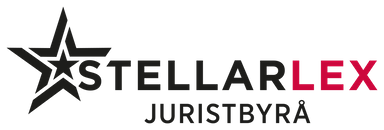GDPR and AI
We help you navigate legal matters related to the General Data Protection Regulation and artificial intelligence
The General Data Protection Regulation (GDPR) sets the framework for a company's storage and handling of personal data. The regulation applies throughout the EU, aiming to protect privacy by defining when personal data may be collected and how it should be stored. The upcoming AI regulation, like the GDPR, applies to all companies that offer services to EU citizens. The regulation introduces a risk-based regulatory approach with requirements for transparency and measures to protect against bias and prejudice in AI systems. Outside of AI legislation, AI gives rise to a range of legal issues that can affect various legal areas, including the GDPR.
We guide you through GDPR compliance
The legal requirements outlined in the General Data Protection Regulation apply to all companies, organizations, individuals, or authorities that collect or process personal data, such as through customer and employee registers. This means that when collecting personal data from both customers and employees, your business is subject to the GDPR, whether your company is a sole proprietorship or a larger international corporation. Therefore, the processing of personal data is a very meticulous task that, if handled incorrectly, can result in administrative sanctions (fines) of up to 4 percent of the total global turnover of the preceding fiscal year.
At Stellarlex Law Firm, we help you navigate the ambiguous regulations included in the GDPR.
Are you using AI in your business or considering doing so?
An increasing number of companies are exploring how artificial intelligence (AI) can be used to optimize their operations and increase competitiveness. This can range from freeing up time and resources through automation, improving analysis through processing large amounts of data, providing better customer service around the clock, and personalized marketing. The list could go on. However, when using AI, there are many legal issues to consider. In addition to the GDPR, AI use can impact the following legal areas: copyright, intellectual property, and data protection.
Companies should also be aware of the increasing use of open and accessible AI systems in the market and how their employees share information with these systems. The use of generative AI and other similar technologies in work processes can pose both security and confidentiality risks. Clear policies on internal and external AI use can be crucial in a rapidly changing digital world.
We start with your needs and conduct thorough analyses of the legal implications of your AI use and help you manage them so that you can achieve new successes.
For more information about our legal expertise, read more about Stellarlex Lawfirm or get in contact with us.



